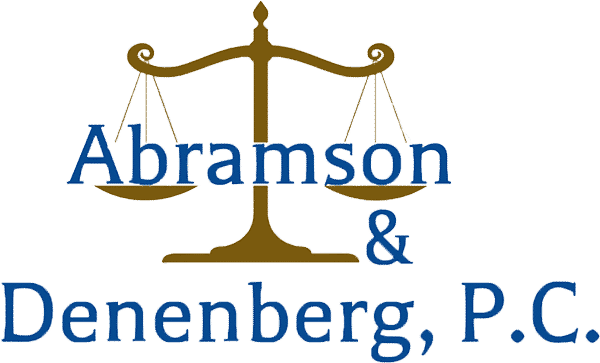Are Police Allowed to Kill People?
Civil rights advocates in Philadelphia explain that the term police brutality encompasses many human rights issues, such as beatings, torture, racial abuse, and indiscriminate use of riot control agents at protests. Unlawful use of force by the police can result in ill-treatment and, at its worst, deprivation of the right to life.
The UN Basic Principles on Use of Force and Firearms by police officers outlines the international laws and standards governing how and when law enforcers can use force, primarily lethal force. They should only use lethal force when it is vital or as a last resort. Most importantly, law enforcers must respect and protect the right to life.
Sadly, many killings by the police around the world do not meet this criterion. Examples are the killings of Eric Garner, Michael Brown, George Floyds, Breonna Taylor, and several other black people who were killed by the police yet were unarmed.
Why Is Police Brutality Rampant?
Several factors contribute to police brutality around the world. Police misconduct attorneys in Philadelphia identify the following as the most common:
Inadequate Local Laws
The lack of local laws that limit police brutality is a significant problem that contributes to police brutality worldwide. For example, Mexico has a National Law on the Use of Force but lacks a statute that limits the use of lethal force to situations only where it is necessary to protect lives. The law doesn’t require officers to use minimum force to resolve a problem.
In the United States, nine states and Washington DC have failed to enact any statute to limit the use of lethal force by police officers. A review of state laws on the use of lethal force reveals that some states explicitly allow the use of deadly force, which violates international standards.
Others leave the statutes vague, that they amount to a violation of the right to life. They lack the twin requirement of necessity and proportionality or present them too weakly.
Racial Discrimination
Philadelphia police misconduct lawyers also recognize racial discrimination as another common cause of police brutality, yet international human rights laws prohibit discrimination in all forms. Police officers should not treat any individual differently based on gender, race, religion, sexual orientation, social origin, or ethnicity. Everyone should be treated fairly and equally by law enforcers.
Unfortunately, racial discrimination is a multi-faceted issue in various justice systems and law enforcement departments worldwide. Racial profiling is common police misconduct, with police officers using discriminatory actions during police checks. They sometimes selectively enforce drug policies based on someone’s race.
Many police brutality cases within the United States directly result from racial discrimination by police officers. Protesters and civil rights advocates have often taken to the streets due to high-profile killings, hoping to reform the US justice system and put an end to the police violence that is so rampant against various communities of color.
Institutional Culture
Most urban police departments have a unique institutional culture emphasizing group solidarity, loyalty, and an approach based on “show off” in dealing with civilians. Anyone who seems to challenge an officer’s authority is met with hostility, with the police showing a united front against the individual or group of people.
Most police officers work with integrity and understand their obligation to protect life. However, some rookie officers want acceptance, promotion, and success within their departments, and the way to gain these is to adopt the group’s values, attitudes, and practices. Historically, most of these practices have been infused with anti-black racism.
If the general working environment of the police department is such that the use of excessive force is not punished or reprimanded, it sends the message that the behavior is an acceptable part of the job description.
Mental Health Issues
The mental health of the offending officers can have a role. A 2019 study revealed that police officers who self-reported engaging in brutality tended to have higher levels of post-traumatic stress disorder (PTSD) from job-related stressors.
Law enforcers with PTSD from job-related stressors and trauma may exhibit an increased startle response that shows in the form of increased aggression and a tendency toward suspicion. These traits can make them more likely to overreact and use deadly force even when unnecessary.
What Are the Solutions to Police Brutality?
Most police brutality incidents in the United States happen because police officers possess a firearm. In some cases, they shoot at their victims multiple times, indicating that the force used is excessive and inappropriate.
Various police misconduct lawyers and civil rights advocates in Philadelphia have called for police reforms for many years and proposed several measures that could make all citizens safer. These include:
- The publication of data on victims of police brutality
- Ensuring all these cases are subjected to thorough and detailed investigations
- Disciplining law enforcers who violate human rights
- Emphasizing the need to resort to minimum force and the prohibition of excessive harm
Handling the issue of police brutality once and for all can be challenging, but if these recommendations are implemented on a larger scale, the public can once again put its trust in the police without fearing for their lives.
A Skilled Police Brutality Attorney Helping You Address Police Misconduct
The public at large is heavily affected by police brutality, which often causes severe physical harm and even death to innocent civilians. It causes a stressful environment and lowers trust in law enforcement. If you believe you or your loved one have been a victim of police brutality, seek the legal counsel of skilled Philadelphia police brutality lawyers to help you weigh your legal options.
Abramson & Denenberg is a civil rights advocacy firm with experienced police misconduct lawyers who can investigate your case. We would be happy to discuss your situation and help you file a civil rights lawsuit against the Philadelphia police department to fight for your rights. Call us at 215-398-7066 to schedule a FREE, no-obligation case review.

